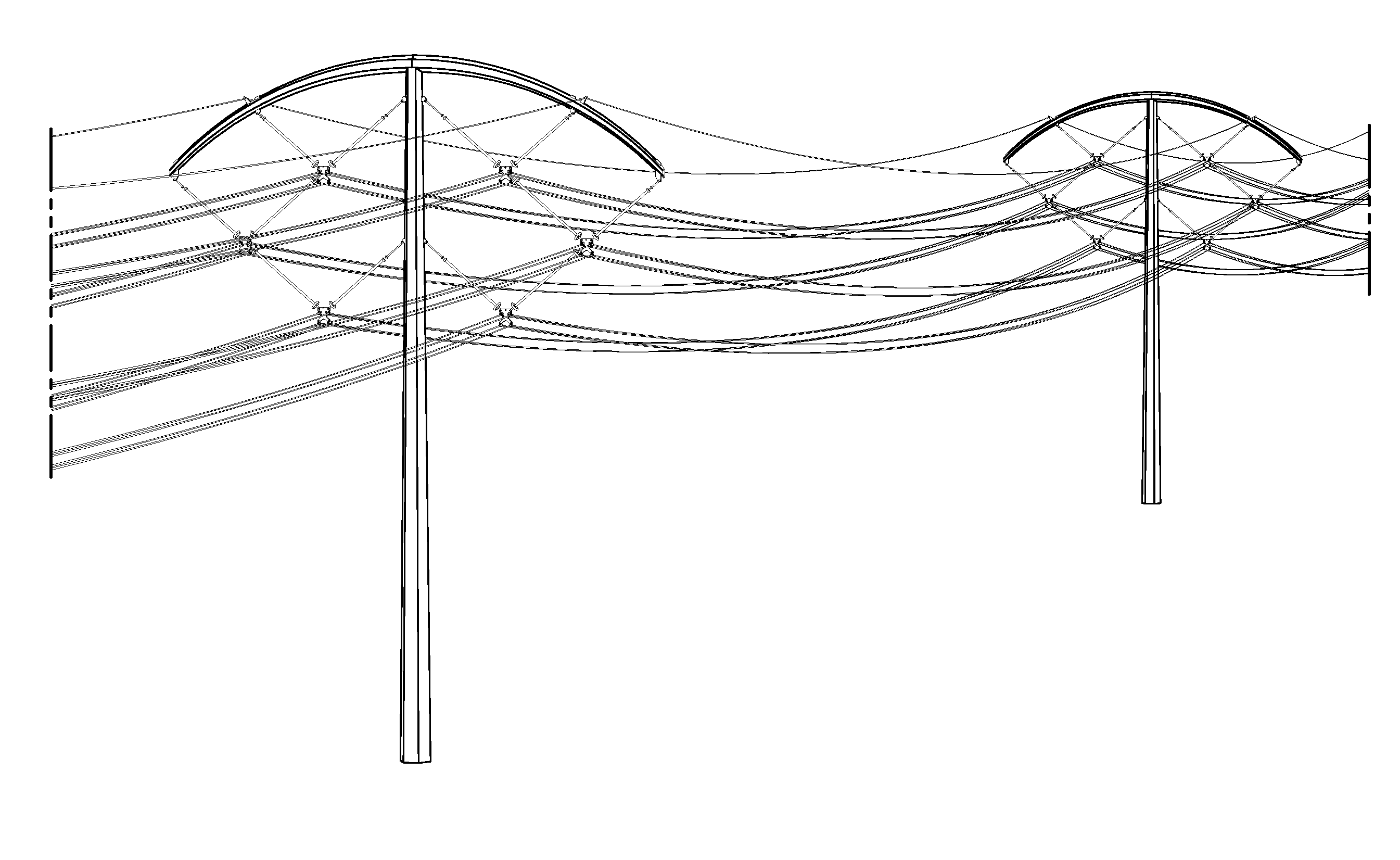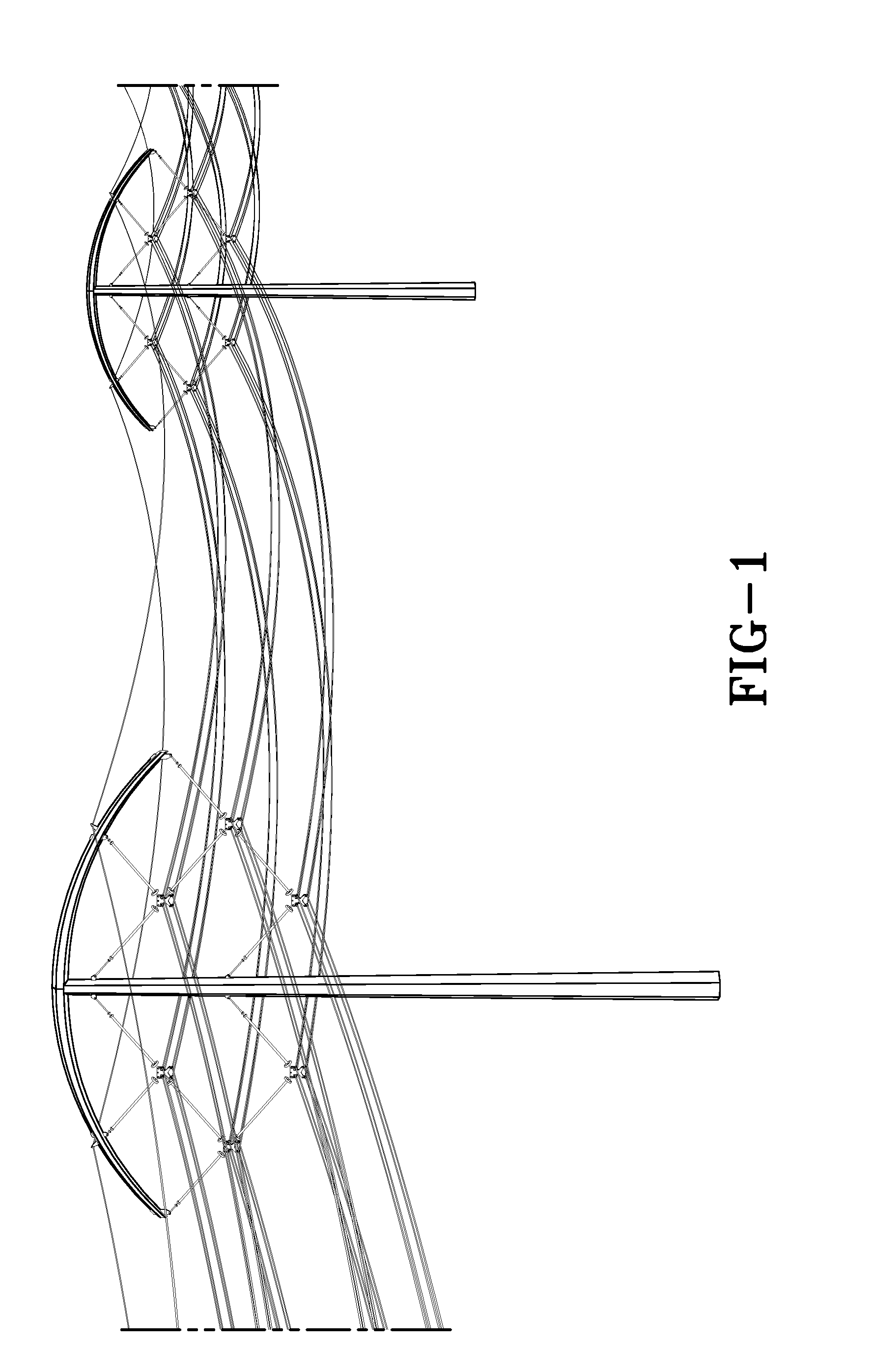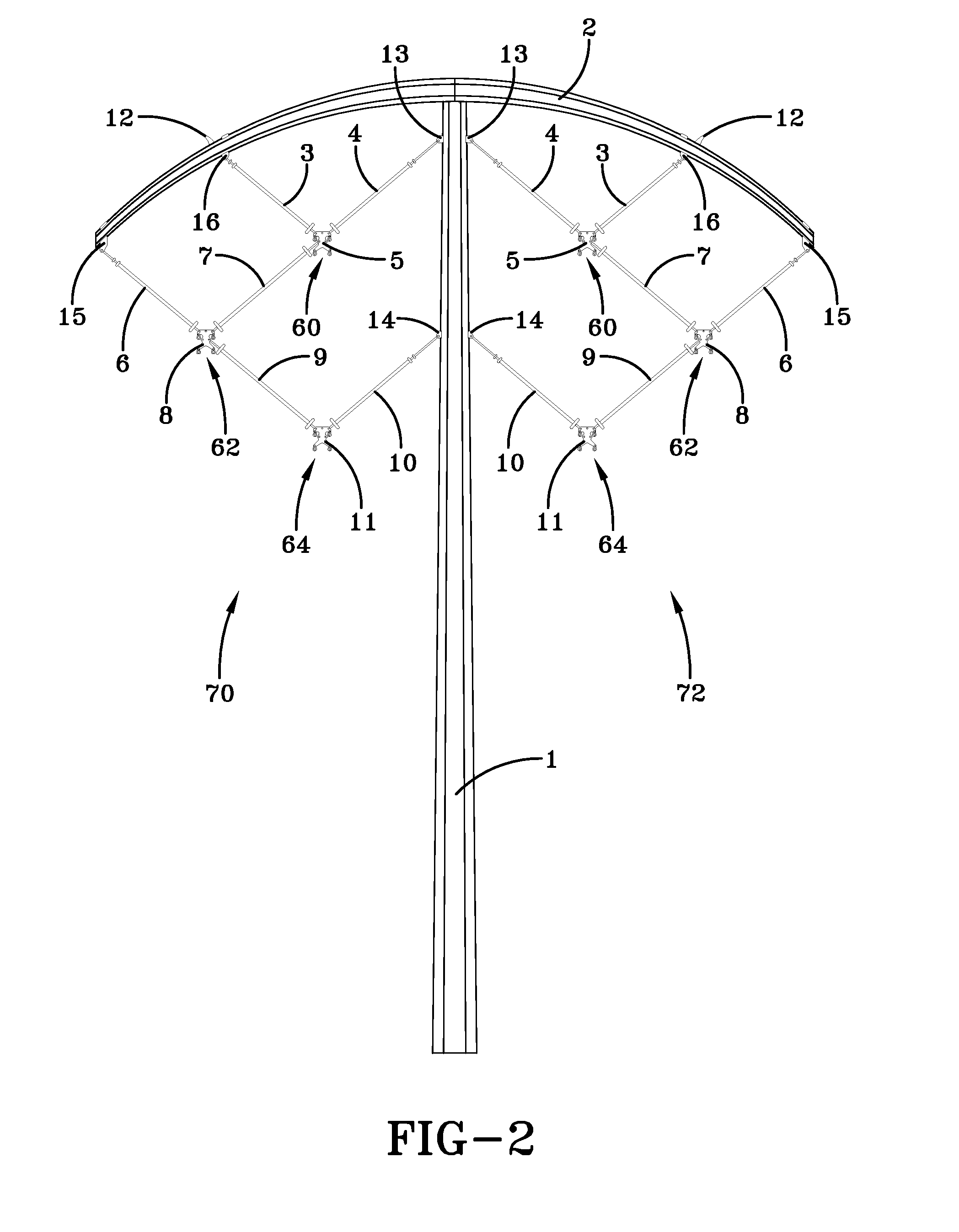High-capacity/efficiency transmission line design
a transmission line, high-efficiency technology, applied in the direction of buildings, buildings, constructions, etc., can solve the problems of limited load-carrying ability, most limiting, and limited steady-state stability achieve the effects of improving the surge impedance load (sil) of the transmission line, improving the aesthetic profile, and improving the design and engineering simplicity
- Summary
- Abstract
- Description
- Claims
- Application Information
AI Technical Summary
Benefits of technology
Problems solved by technology
Method used
Image
Examples
Embodiment Construction
)
[0025]FIG. 1 shows the preferred embodiment of a 345 kV double-circuit line design of the present invention. It features a streamlined, relatively low-profile structure with phase-conductor bundles arranged into compact “delta” configurations by means of interphase insulators (“delta” means in a substantially triangular shape with internal angles in the range of 30 to 120 degrees). Compact delta configurations have the advantage of improved line surge impedance loading (SIL), lower series impedance, and reduced ground-level EMF effects (“compact” means a relatively closer arrangement than typical transmission line configurations that avoids the need for series compensation or any significant amount of series compensation; “compact” means in the range of 10 to 20 feet between any two phases). SIL, a loading level at which the line attains self-sufficiency in reactive power (i.e., no net reactive power into or out of the line), is a convenient “yardstick” for measuring relative loada...
PUM
 Login to View More
Login to View More Abstract
Description
Claims
Application Information
 Login to View More
Login to View More - R&D
- Intellectual Property
- Life Sciences
- Materials
- Tech Scout
- Unparalleled Data Quality
- Higher Quality Content
- 60% Fewer Hallucinations
Browse by: Latest US Patents, China's latest patents, Technical Efficacy Thesaurus, Application Domain, Technology Topic, Popular Technical Reports.
© 2025 PatSnap. All rights reserved.Legal|Privacy policy|Modern Slavery Act Transparency Statement|Sitemap|About US| Contact US: help@patsnap.com



